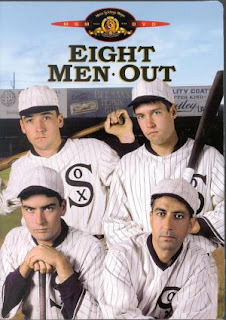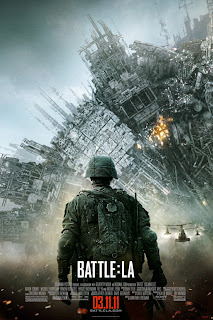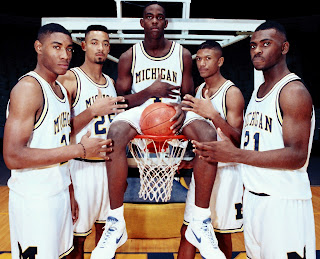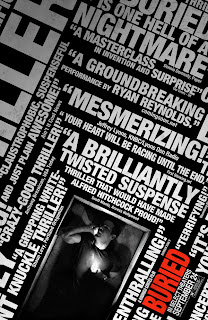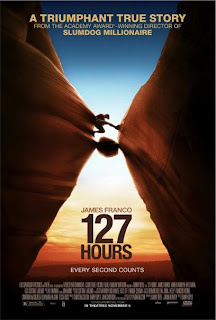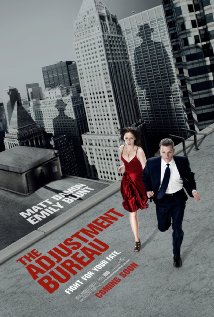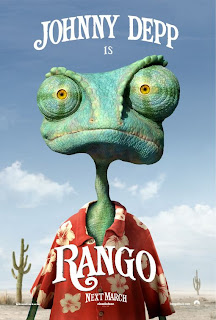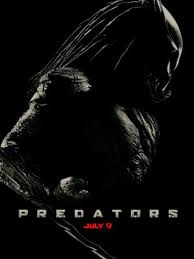"Fast Five"
I went into “Fast Five” in the company of two guys who had never seen any of the previous films in the series. After giving them a brief primer on the extensive storyline that they were about to walk into, we sat down for what proved to be a gloriously absurd open that fits beautifully. Only a minute or two in, one of my friends gave me the, “that’s not possible” look and began to register an appropriate complaint. I quickly cut him off and said simply, “Either set your sense of reality aside for the next two hours or leave right now.” He obliged and darnit if he didn’t have himself a stinking good time. And that’s the key to “Fast Five” or any action film like it: either get on board for the fast paced ridiculousness that’s about to unfold or stay out of its path altogether. If you do that, you’re almost bound to enjoy yourself because man, this movie is a blast.
Starting where its predecessor left off, “Fast Five” opens on Brian O’Conner (Paul Walker) and Mia Toretto (Jordana Brewster) breaking Dominic Toretto (Vin Diesel) out of a prison bus and immediately going on the run to Rio De Janeiro. Soon the trio has joined a crew undertaking a risky heist at the behest of Reyes (Joaquim de Almeida), a crime boss with a vast influence in Brazil. Inevitably, the job goes awry and garners the attention of the American feds who send special agent Hobbs (The Rock) and his team to track our heroes down. While being pursued by both Reyes and Hobbs, O’Connor and the Torettos assemble a crack team of fellow thieves to take on a huge job which has very little chance of success.
At times “Fast Five” plays out more like a sequel to “The Italian Job” than another entry in the “FF” series. The fact that it’s set in Brazil only adds to that “Italian Job” feel. (For the uninitiated, the oft-rumored, oft-denied “Italian Job” sequel was supposed to be set in Brazil and would be titled, obviously, “The Brazilian Job.”) There are far fewer car races and chases than in the other “FF” movies and much more attention is made to the story element, something that this franchise has been known to ignore at times in the past. “Fast Five” is a heist movie first, car movie second and for me, the combination works. It isn’t a great story, mind you; rather, it’s not a perfectly executed story. There are an ABUNDANCE of plot holes that are covered over by one character or another saying something to the effect of, “Just trust me” or “You don’t want to know.” The first time this happened I was annoyed but the subsequent instances just added to the “yes, we know this is ridiculous” vibe that the entire movie (and really the entire franchise) relishes in. “Fast Five” embraces the spirit of “Italian Job” and the “Ocean’s” movies but lacks some of the wit and intelligence that those films displayed.
On the flip side, whereas those movies tread lightly (relatively speaking) on the more ridiculous elements of their storylines, “Fast Five” throws the throttle back and runs right through all rules of realism. In short, I feel like the makers of “Italian Job” would have you believe that most of the events of that movie could happen whereas the geniuses behind “Fast Five” want to make sure you know that they know that none of this could ever happen. This fact gives the viewer complete freedom to ignore the laws of physics and gravity and simply enjoy the ride. I, for one, really appreciate this because the action sequences are dynamic and wholly entertaining and it would be a shame to take away from these with the restrictions of reality. The final sequence alone is one of the most insane, ridiculous, and deliciously satisfying action scenes I’ve ever seen and demonstrates exactly why director Justin Lin is fast becoming a go-to guy in the industry.
Performance wise, “Fast Five” gives you exactly what you expect. Walker is kind of an awful actor in my book but he fits O’Conner well, a quality that allows him a comfort zone wherein you don’t notice how bad he sucks (like Keanu Reeves with Ted Logan). Diesel, meanwhile, is his usual menacing, baller self. I’m a big fan of Diesel and if I’m being honest, I would wish for him more meaningful roles that Dom Toretto. But at the end of the day, you have to take what work you can get and if he’s not going to get superstar roles, I would much prefer to see Diesel at his cool and head-cracking best here than in “Babylon A.D.” or the like. In an action movie, the next best thing to hiring great actors is hiring actors who have great chemistry and this cast has that in bunches. The supporting actors, including Tyrese Gibson and Chris (Ludacris) Bridges, all work seamlessly within the framework of the movie. In all honesty, The Rock is the only actor who doesn’t quite fit in with the others, at least in the beginning. Granted, he is given next to nothing to work with from a dialogue standpoint. But while Diesel and Walker thrive in the tongue-in-cheek, fun atmosphere that Lin creates, The Rock struggles mightily to find his tone. He seems to take his role too seriously and as a result, his lines are painfully flat. As the movie progresses, he works his way into a groove but seriously, some of his early scenes are ROUGH.
As I said in the opening paragraph, chances are your level of enjoyment when it comes to “Fast Five” will depend directly on your ability (see: “willingness”) to ignore that nagging voice that says, “you can’t jump out of a fast moving car into a river 100 feet below and live to tell the tale.” Again I say, if you can’t do that, there are other movies for you to see. I myself, though, had no qualms about leaving the baggage of reality at the door and what a rockin’ awesome time I had because of it. The heist plotline, even if it is done a bit shoddily, adds an exciting element to “Fast Five” and makes it perhaps the best of the franchise.
Grade: B+
Vin Diesel has to be the best stage name ever,
Brian




